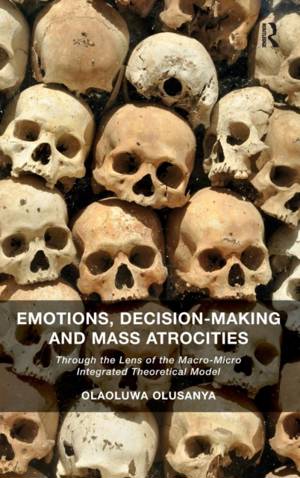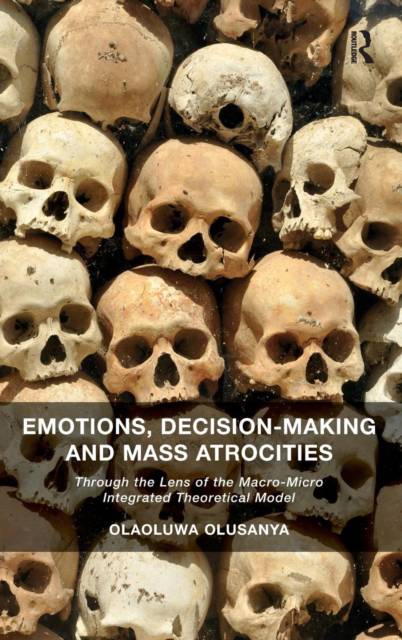
- Retrait gratuit dans votre magasin Club
- 7.000.000 titres dans notre catalogue
- Payer en toute sécurité
- Toujours un magasin près de chez vous
- Retrait gratuit dans votre magasin Club
- 7.000.000 titres dans notre catalogue
- Payer en toute sécurité
- Toujours un magasin près de chez vous
Emotions, Decision-Making and Mass Atrocities
Through the Lens of the Macro-Micro Integrated Theoretical Model
Olaoluwa Olusanya
Livre relié | Anglais
195,95 €
+ 391 points
Description
This book rehumanizes perpetrators of mass atrocities. At present a victim/perpetrator dichotomy appears to be the dominant paradigm: perpetrators have either been 'mechanistically dehumanized', that is, perceived as unemotional, hard-hearted and conforming and thereby lacking the core features of human nature or alternatively, they have been 'animalistically dehumanized'. In other words they are seen as immoral, unintelligent, lacking self-control and likened to animals. Within sociology and criminology the dominant view is that genocide and other mass atrocities are committed by technologically-lobotomized perpetrators. Somehow the process of rationalization is believed to have transformed these people from emotionally healthy people into hollow soulless shells of human beings or zombies, devoid of a full range of normal emotions. These people are considered bereft of any ability to reason, think or feel, yet ambulant and able to respond to surrounding stimuli. However it is difficult to imagine crime (especially those involving a group of people working together for the duration of a particular criminal activity) without emotions. For instance, there is ample evidence suggesting that both crimes of passion and pre-meditated crimes involve emotional arousal. Furthermore, research in fields such as evolutionary biology, psychology and sociology of work and organizations suggest that emotions are essential for human progress and survival. In addition, emotions help us make the right call in risky and uncertain situations, in other words, the majority of real life situations. There is, therefore, a need to revisit existing assumptions around the role of emotions in mass atrocities.
Spécifications
Parties prenantes
- Auteur(s) :
- Editeur:
Contenu
- Nombre de pages :
- 160
- Langue:
- Anglais
Caractéristiques
- EAN:
- 9781472431035
- Date de parution :
- 02-06-14
- Format:
- Livre relié
- Format numérique:
- Genaaid
- Dimensions :
- 156 mm x 234 mm
- Poids :
- 403 g







